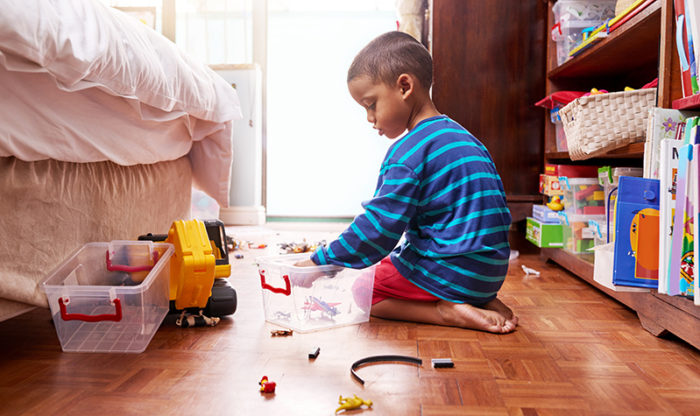
Parents sometimes wonder if their children’s behaviors are normal, or at what point they should be concerned that new behaviors reflect a problem with the child’s mood.
When a previously happy-go-lucky child becomes more subdued, is it evidence that they’re maturing, or the first indication of a problem? What about a child who’s typically serious and responsible gradually becoming more uncooperative or argumentative? Is this normal teenage behavior, or a sign of a developing mood disorder?
What’s in a personality?
Let’s think about how variations in kids’ behavior develop. Children come into the world with biologically-based predispositions, or increased likelihood based on genes, to certain behavioral styles. We refer to the collection of these predispositions as “temperament.” Temperament includes many aspects, such as activity level, adaptability, intensity and persistence. Of course, the variations in these characteristics are not necessarily good or bad, nor by themselves indications of any mental disorder. Children come in as wide a variety of temperaments as complexions, with natural levels of activity, for example, from energetic and bouncy to relatively calm.
Interacting with the world
These dispositions influence how a child approaches the world and, equally important, how the world (beginning with parents) responds to them. Temperament also influences not only how children react to experiences, but also the likelihood of having certain types of experiences. The child who is more “sensation seeking” for example, if lucky, will encounter exciting adventures that build self-confidence in their ability to master challenges. If less fortunate, they may encounter painful experiences or even punishment.
Temperament impacts such factors as sensitivity to negative emotions, and vulnerability to experience negative emotions. We’re all familiar with kids who easily become aware of the suffering of others, as well as those who are quick to get their own feelings hurt. These characteristics seem to remain fairly stable as children grow up, although certain environments can nurture and enhance or discourage their expression.
Our brains, like our muscles, get better at whatever activities we practice. Children who find it easy to meet and interact with peers gain skill as they practice doing so, and are more likely to “risk” reaching out to new peers because it has been rewarding to do so in the past. Children who are introverted, however, tend not to practice the skill of talking to new people, making them less likely to expand their circle of friends.
It’s also important to note that when children get stressed their underlying personality or temperamental style becomes more prominent. A shy child may become even more clingy, an extroverted child more rambunctious. These exacerbations in behavior could be a red flag suggesting a need to explore if your child is feeling stressed.
A cause for concern
Back to the original question: At what point does a particular behavioral style raise concern about the need for mental health evaluation? Generally, the determining factor should be the degree of discomfort the child or adolescent is experiencing, or the degree of dysfunction evident in the performance of age-appropriate tasks.
A child may enjoy being alone, but if this leads to feeling overwhelmed when in a group, parents may have reason for concern. A child may be sociable and extroverted, but if they’re miserable when there’s no one to hang out with at the moment, parents may be concerned. A child who loses interest in previously-enjoyed activities without replacing them with new, socially-acceptable preferred activities should raise a parent’s concern as well.
What’s a parent to do?
While temperament is biological and forms the basis of personality, parents can help their kids exercise skills that may not come as naturally. A child who is active or intense can be encouraged to try mellow activities, such as yoga, not to attempt to change their personality but to allow them to be more flexible in behavioral responses. A child who is slow to warm up can be given the time it takes to become comfortable in a new situation.
When concerns about changes in behavior arise, the first step is to gently explore with the child what has contributed to the change. Sometimes an explanation becomes clear, and the disturbance can be resolved with a few adjustments to the environment. If the child is not able to explain the change, it might be reasonable to talk with their teacher, or other adults with whom they interact, to explore whether events at school or with peers might be impacting the child’s behavior. If this doesn’t turn up an explanation, the best next step is to consult your child’s pediatrician or a mental health professional about your concerns. The earlier problematic behaviors are identified and addressed, the happier the child is likely to be.
Concerned about your child’s behavior or mental health? Call (804) 828-3129 to schedule an appointment with a mental health expert at Virginia Treatment Center for Children.
By Dorothy O’Keefe, MD, child and adolescent psychiatrist, Virginia Treatment Center for Children
Medical executive editor for mental health blog series: Bela Sood, MD
